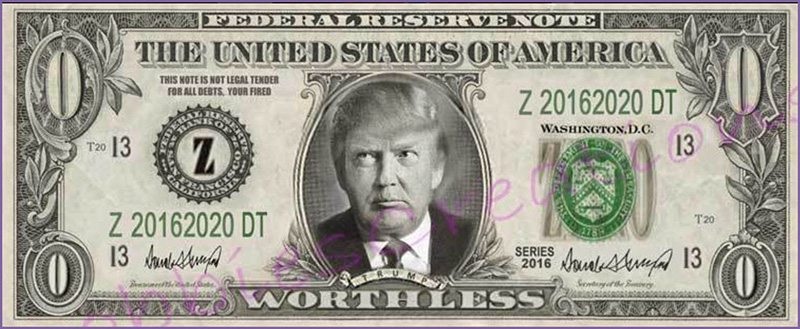 Pic.: publics
Pic.: publics
The currency’s dominance enables very high debts and deficits, meaning a plunge might spell disaster, writes ‘The Economist’.
Most alarming lately have been movements in the bond and currency markets. In total since April 1st the dollar has fallen by more than 4% against a basket of major currencies, at the same time as yields on ten-year Treasury bonds have risen by 0.3 percentage points.
If bond yields were rising because of stronger American economic growth, they would bring about a stronger greenback. That the dollar is falling instead suggests investors are worried about America’s economic stability. It is an ominous repeat of a pattern that struck in Britain after Liz Truss’s disastrous “mini-budget” in 2022, which promised unaffordable tax cuts. Although Mr Trump’s tariffs raise money for the government, such revenue could be dwarfed by the higher payouts required by rising bond yields.
Moreover, America’s budget is already in an awful state. Global demand for the dollar and Treasuries has enabled America to run a more extravagant budget than that which sparked the crisis in Britain. This special status is known as “exorbitant privilege”. The federal government’s net debts are worth about 100% of gdp. In the past 12 months, America has disbursed 7% of gdp more than it raised in revenue, and spent more on interest payments than on national defence. Over the next year officials must roll over debt worth nearly $9trn (30% of gdp).
Now that privilege is under threat. Mr Trump’s tariffs are likely to cause deeper economic harm in America than elsewhere. They also reveal American policymaking to be arbitrary and capricious. Who can predict where tariffs will be in a week’s time? The sense of unease goes beyond economics. Mr Trump’s willingness to defund universities that house his critics, to withdraw government business from law firms which work with his legal opponents and to deport migrants to a prison in El Salvador without a hearing appears to threaten the norms on which American society has been built.
It is, therefore, no longer so hard to imagine dire scenario: removing the independence of the Federal Reserve. Indeed, a case is making its way through the courts that could make it easier for Mr Trump to do the latter.
No wonder investors are spooked. Yet Republicans are seeking to extend and add to tax cuts from Mr Trump’s first term, as if America’s creditworthiness were unquestionable. On April 10th the House of Representatives approved the Senate’s blueprint for a budget that could add $5.8trn in deficits over the next ten years, according to the Committee for a Responsible Federal Budget (crfb), a think-tank.
In recent years, economists have warned that exorbitant privilege, by making borrowing cheap, might induce America to take on too much debt, thereby making the dollar financial system fragile and vulnerable to a run. On this theory, it could collapse, much as the dollar’s peg to gold did in 1971, when the Bretton Woods system of fixed exchange rates imploded. Little more than a week ago King Dollar’s reign looked secure and such a calamity seemed highly remote. It is a measure of Mr Trump’s havoc that it now appears possible.
read more in our Telegram-channel https://t.me/The_International_Affairs

 11:48 23.04.2025 •
11:48 23.04.2025 •






















